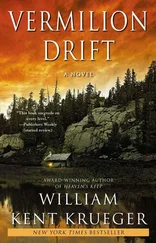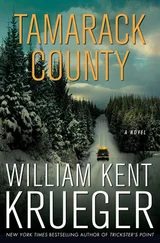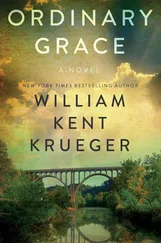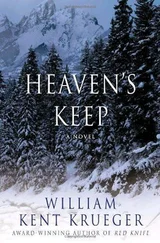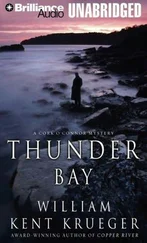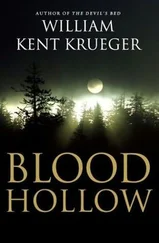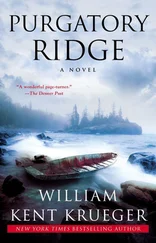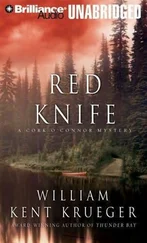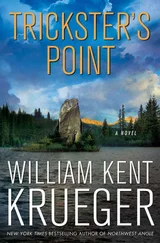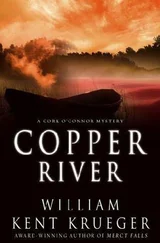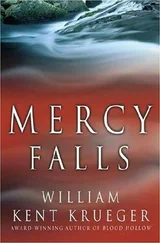

NORTHWEST ANGLE
ALSO BY WILLIAM KENT KRUEGER
Vermilion Drift
Heaven’s Keep
Red Knife
Thunder Bay
Copper River
Mercy Falls
Blood Hollow
The Devil’s Bed
Purgatory Ridge
Boundary Waters
Iron Lake
ACKNOWLEDGMENTS
The Northwest Angle of Minnesota is an area remarkable in its geography, its beauty, and its people. I am indebted to those who live on the Angle, folks generous with their time, knowledge, and resources. I’m especially grateful to Debra Kellerman and Tony Wandersee, who own the Angle Inn Lodge on Oak Island. Better hosts or nicer people would be hard to find anywhere. I also extend a huge thanks to Tony Ebnet for an extraordinary day on Lake of the Woods that neither my wife nor I will ever forget. To those who live on the Northwest Angle or the Angle Islands, and to those who know the area well, I offer a caution when reading this novel, and a small apology. I have, of necessity, taken a few liberties with geography. Stump Island, for example, doesn’t exist, but islands very like it do. I’ve tried to create the landscape necessary for the story without compromising the essential and marvelous reality of the Angle. I hope you understand.
A huge thanks to Erin Sullivan-Sutton of the Minnesota Department of Human Services, who gave me fine advice about adoption in Minnesota, and the ways in which a child’s welfare, common sense, and bureaucratic requirements might work in harmony to achieve great good.
To the Powassin family of Windigo Island: Thank you for inspiring Amos Powassin, a character who became very dear to my heart while I wrote this story.
To my agent, Danielle Egan-Miller, and her associates, Joanna MacKenzie, Lauren Olson, Shelbey Campbell, and Alec McDonald, my deepest thanks for helping to keep my worst tendencies as a storyteller in firm check, and for providing such sound direction in the revisions of this novel.
To the team at Atria—my editor, Sarah Branham, my publicist, David Brown, and the marvelous folks in the art department who create the stunning design of my books: I can never thank you enough for all that you do.
Finally, a tip of my hat to the Java Train, a lovely island of community, creativity, and occasional chaos, where I always find a warm welcome and a clean table for my work.
AUTHOR’S NOTE
On July 3, 1999, a cluster of thunderstorms developed in the Black Hills area of South Dakota and began to track to the northeast. On the morning of July 4, something phenomenal occurred with this storm system, something monstrous. At the edge of western Minnesota, the storm clouds gathered and exploded, creating what would become one of the most destructive derechos ever to sweep across this continent.
A derecho is a unique storm system, a bow-shaped formation of towering black clouds that generate straight-line winds of hurricane force. The derecho that formed on July 4 barreled across northern Minnesota. In the early afternoon of that Independence Day, its hellish winds, clocked at over a hundred miles an hour, struck the Boundary Waters Canoe Area Wilderness, a land so beautiful it’s as near to heaven as you’re likely to find anywhere on this earth. The storm damaged nearly half of the wilderness, toppling millions of trees, leaving whole hillsides barren of life. It killed one camper and trapped and injured dozens of others.
After it left Minnesota, the storm veered across the border into Ontario, Canada, and continued its destructive sweep to the east. It slammed into the state of New York and then into New England. It traveled out to sea, turned, and came at South Carolina. The system, though weakened, continued its destruction until it finally fell apart over the Gulf of Mexico. By then, it had traveled nearly six thousand miles, the longest storm track of its kind ever recorded in North America.
I have always known that such a storm would play a part in one of my stories. This is the story.
PROLOGUE
He woke long before it was necessary, had wakened in this way for weeks, troubled and afraid. A dull illumination came through the houseboat window into the cabin he shared with his son. Not light exactly. More the promise of light. False dawn, Cork O’Connor knew.
He threw back the thin sheet, slipped quietly from his bunk, and stepped into the long central hallway of the houseboat. The air was still, which was odd on the vast lake where they lay anchored. No sound of birds either, no early morning chatter, and that, too, was strange. He walked down the hallway, past the room where his sister-in-law and her husband slept, past the rooms of his two daughters, onto the stern deck with its swim platform. He stood at the railing, looking across water as black as engine grease. The moon hadn’t set yet but was so low and wan in the western sky that what light it gave was almost useless. There were stars, so many they felt like a weight pressing down on him. East, where dawn was still more dream than reality, he could see the dimmest outline of an island against a gray that ghosted along the horizon.
He lowered his head and stared at the water.
He should have been happy. He’d planned this vacation with happiness as the goal, and not his happiness alone. He’d conceived of this family gathering, bringing close to him everyone he loved, in order to make them happy, too. They hadn’t been together, all of them, in almost two years. Not since Jo had been laid to rest in the cemetery in Aurora. In his imagining, the gathering would be the ticket to finding happiness again—his and theirs—and the houseboat would be the way. But like the false dawn, the trip had promised something it had yet to deliver, and day after day, he found himself waking troubled and restless.
The problem was simple. He’d always thought of his family as if they were part of a tree he’d planted long ago. The tree had grown and flourished, and just being in its shade had been such a great joy. But it seemed to him that, with Jo’s death, the leaves had begun to fall away—his daughters gone to lives of their own and his son soon to follow—and he was afraid that, no matter what he did to save it, the tree would die. An irrational fear, he knew, but there it was, pressing hard upon his heart, whispering to him darkly in these lonely moments.
He heard a loud yawn behind him. Uncertain if his face might give away his concern, he didn’t turn.
“Dad?” his son asked from the houseboat doorway. “We’re going fishing, aren’t we?”
“You betcha, Stephen.”
“Good. I’ll get dressed.”
When he was alone again, Cork took a deep breath, pulled himself together, and turned from the black water to meet the day.
At his back, his fear went on whispering.
ONE
Later, when it no longer mattered, they learned that the horror that had come from the sky had a name: derecho.
At the time, all they knew was that the day had begun with deceptive calm. Rose was up early, though not as early as the men, who’d risen at first light and had taken the dinghy across the broad channel to fish. She made coffee and sat on the deck of the houseboat and said her daily prayers while a bright lemon sun rose above the lake and islands. She began with a prayer of thanksgiving for all she had—especially her husband and her family—then, as always, prayed mostly for the people who, in life, despaired. She prayed for those whom she knew personally and for the greater multitude she didn’t. At last, she said her amen and gave herself over to the pure pleasure of the still morning.
Читать дальше



